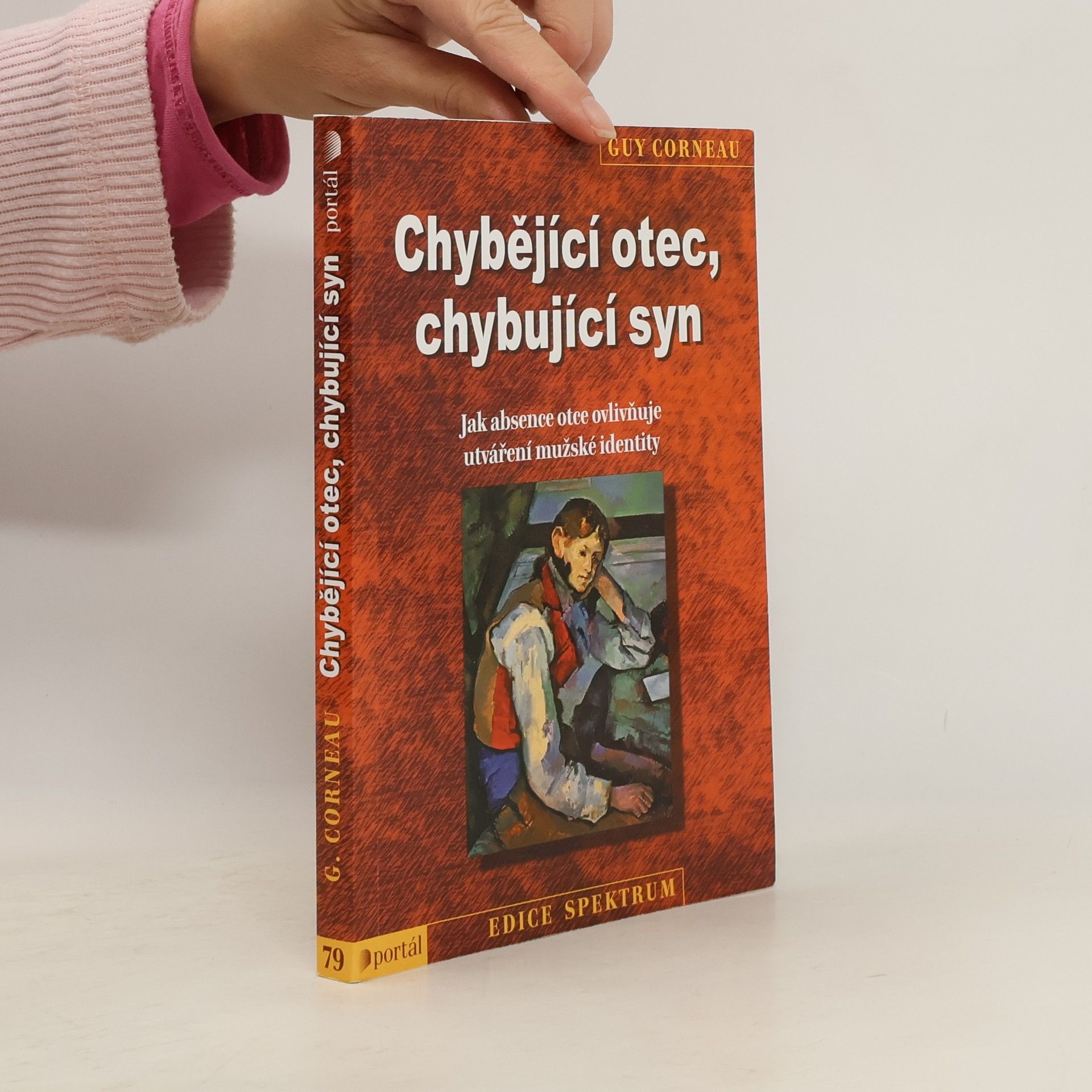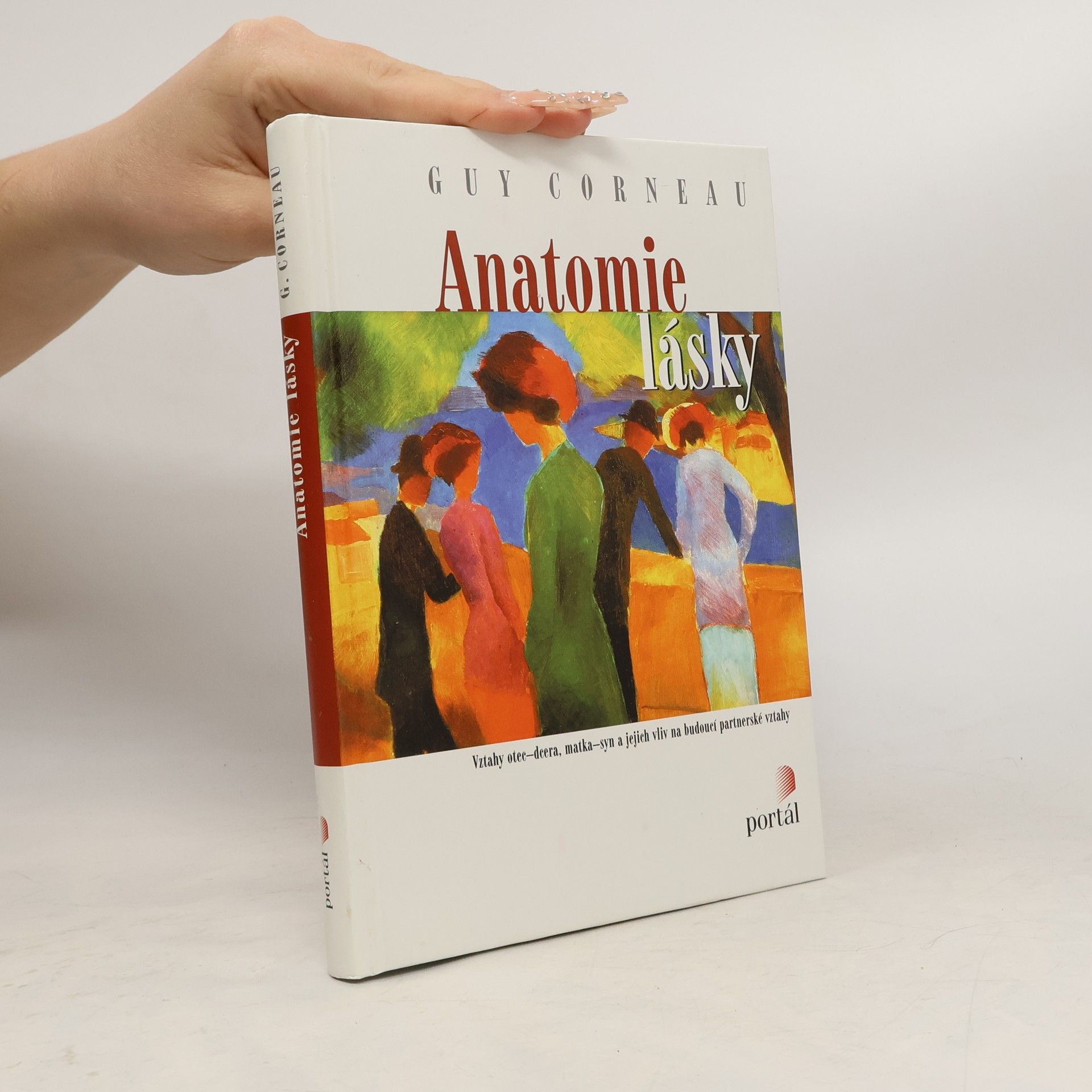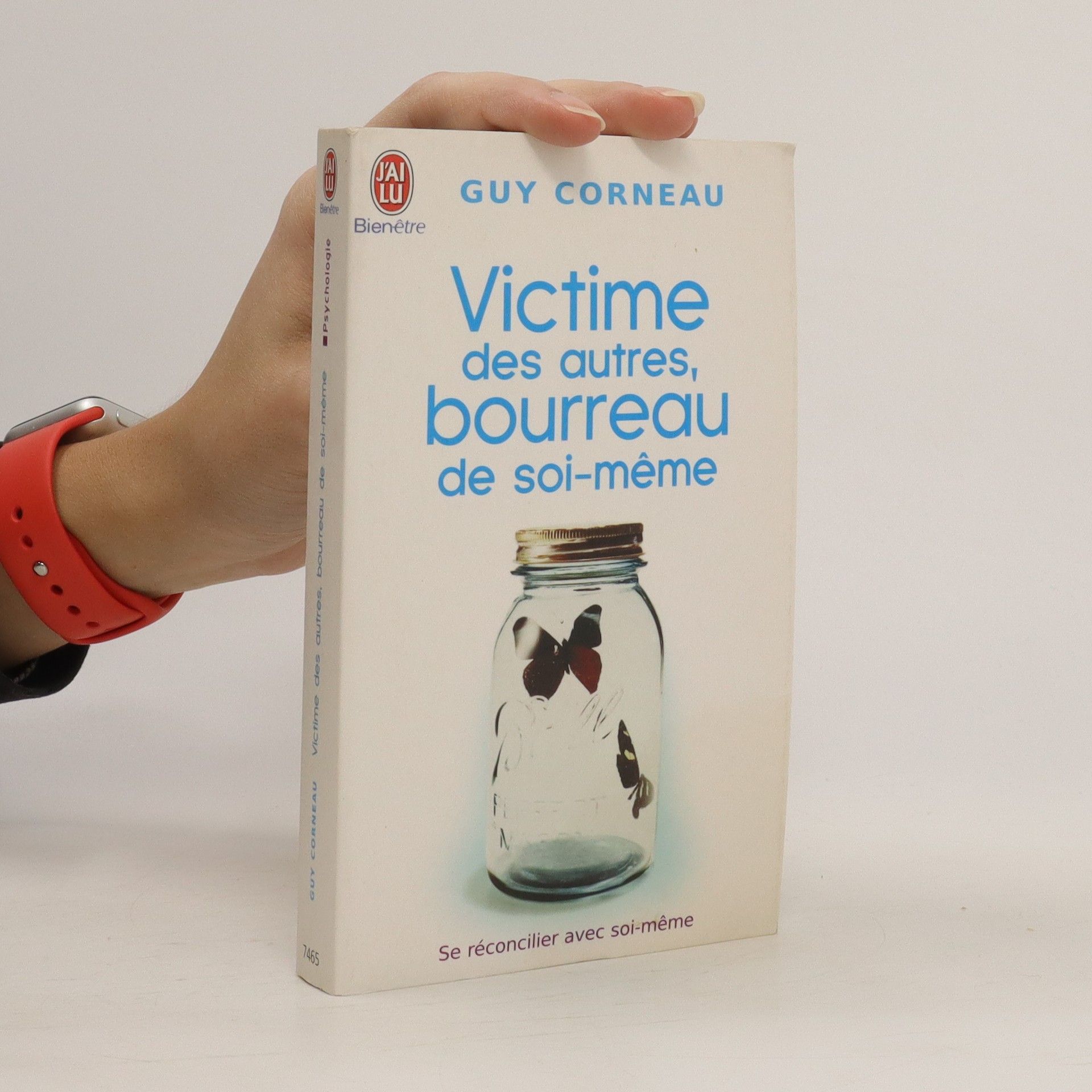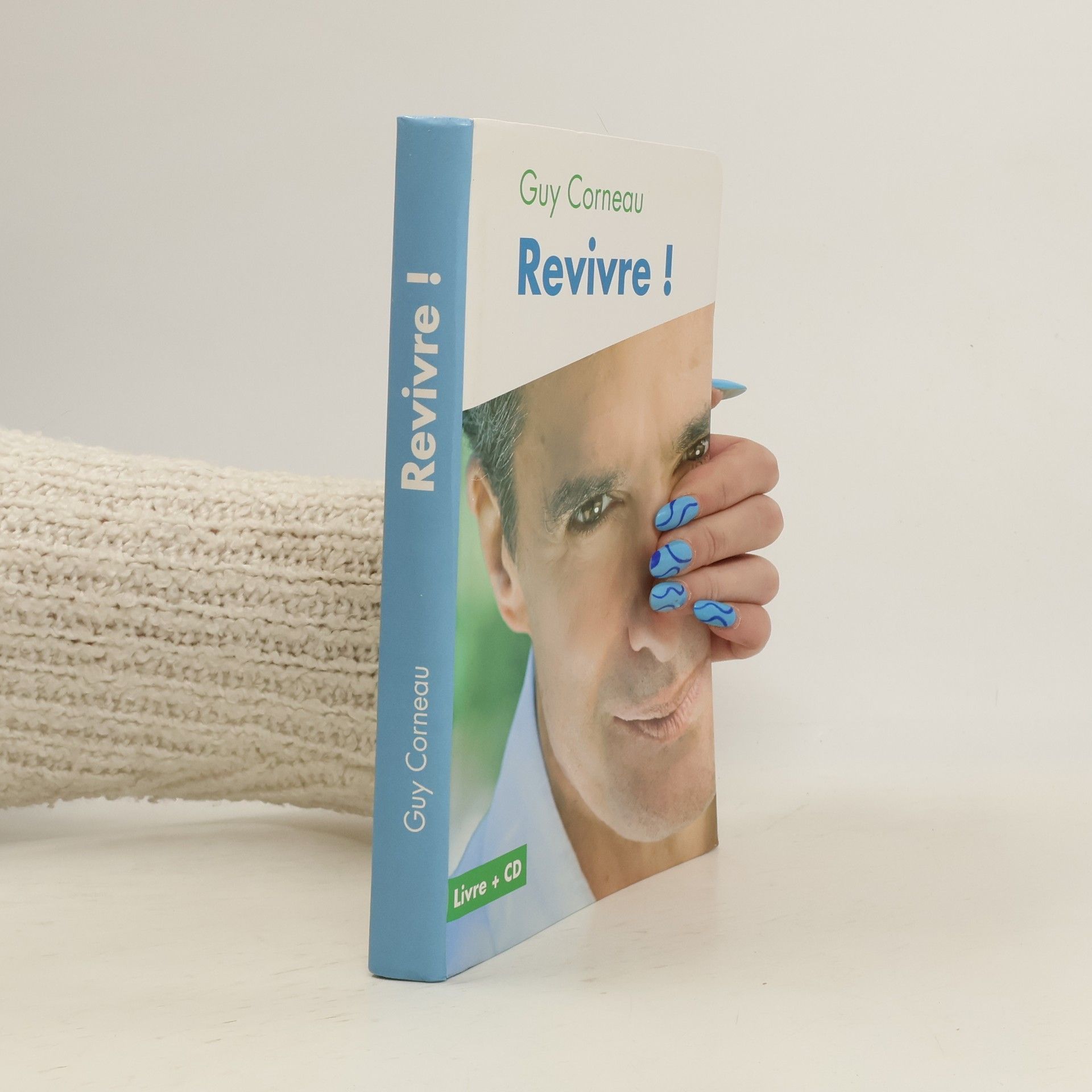Guy Corneau Bücher
Guy Corneau schlug als ausgebildeter Psychoanalytiker einen unkonventionellen Weg ein, der zunächst im Theater wurzelte, wo er schrieb, spielte und Regie führte. Nach seinem Master-Abschluss setzte er seine Ausbildung am C.G. Jung-Institut in Zürich fort. Er verließ die Privatpraxis, um sein Wissen einem breiteren Publikum zugänglich zu machen, und teilte seine Erkenntnisse durch Vorträge und ausgedehnte weltweite Tourneen. Corneau verfasste fünf Bestseller, die sich Themen wie fehlende Väter und ihre Söhne, Beziehungen zwischen Männern und Frauen, den Sinn von Leiden und den Einfluss unbewusster Prägungen auf persönliches Wachstum widmen. Seine Werke bieten tiefe Einblicke in die menschliche Psyche und Wege zur Selbstfindung und Erfüllung.







Lessons In Love. The Transformation of Spirit Through Intimacy
- 336 Seiten
- 12 Lesestunden
In the tradition of Thomas Moore, Jungian analyst and lecturer Guy Corneau delivers a hopeful message that will help us move beyond the gender wars to a new era of personal fulfillment. With engaging anecdotes and mythical references, he instructs us to look into ourselves and create our own guiding principles. He then suggests how we can achieve our aspirations through meaningful relationships with those who challenge us to test and fulfill them.
A Jungian analyst examines masculine identity and the psychological repercussions of ‘fatherlessness’—whether literal, spiritual, or emotional—in the baby boom generation An experience of the fragility of conventional images of masculinity is something many modern men share. Psychoanalyst Guy Corneau traces this experience to an even deeper feeling men have of their fathers’ silence or absence—sometimes literal, but especially emotional and spiritual. Why is this feeling so profound in the lives of the postwar “baby boom” generation—men who are now approaching middle age? Because, he says, this generation marks a critical phase in the loss of the masculine initiation rituals that in the past ensured a boy’s passage into manhood. In his engaging examination of the many different ways this missing link manifests in men's lives, Corneau shows that, for men today, regaining the essential “second birth” into manhood lies in gaining the ability to be a father to themselves—not only as a means of healing psychological pain, but as a necessary step in the process of becoming whole.
Anatomie lásky. Vztahy otec-dcera, matka-syn a jejich vliv na budoucí partnerské vztahy
- 248 Seiten
- 9 Lesestunden
Vztahy otec-dcera, matka-syn a jejich vliv na budoucí partnerské vztahy. Vztahy otec-dcera, matka-syn a jejich trvalé důsledky. Psycholog a zkušený odborník na partnerské vztahy ve své Anatomii lásky uvádí předpoklady pro vytvoření vztahu, který by bylo možno za šťastnou lásku označit. Jako zdroje problémů, které ovlivňují vztah mezi partnery, autor uvádí nesprávné přijetí své identity, svého mužství nebo ženství, problémy v rodinách ze kterých partneři vyšli, zvláštní pozornost je věnována vztahům otec-dcera a matka-syn. Nedostatky minulosti tu podle autora z velké části vysvětlují současné problémy v partnerském vztahu. Vztahy a konflikty v rodinných a partnerských svazcích jsou dokreslovány konkrétními příběhy.
Chybějící otec, chybující syn : jak absence otce ovlivňuje utváření mužské identity
- 191 Seiten
- 7 Lesestunden
Jak absence otce ovlivňuje utváření mužské identity. Autor úspěšné knihy Anatomie lásky Guy Corneau pojednává v tomto titulu o morálním zranění, jímž trpí někteří muži, kterým scházel kvalitní kontakt s otcem. Fyzická absence otce se u nich projevuje po stránce afektivní a psychické a vyvolává určité nedostatky při utváření mužské identity ještě i v době, když tito synové dospěli, případně se sami stali otci. Autor vychází z vlastního života (zejména ze vztahu s vlastním otcem, resp. bez něj), z portrétů různých mužů a jejich příběhů a z příkladů z vlastní terapeutické praxe. Seznamuje čtenáře s tím, jak se tito muži jeví navenek, a jací doopravdy jsou uvnitř. Ukazuje důsledky, jež se projevily u synů, kteří vyrostli bez otce nebo jakoby bez otce. Ve své knize nabízí možnosti k lepšímu vzájemnému pochopení a souznění mezi mužem a ženou, rodiči a dětmi. V závěrečných kapitolách ukazuje, jak najít východiska a zbavovat se důsledků. Kniha Chybějící otec, chybující syn se stala po vydání bestsellerem, vychází v doplňovaných a revidovaných vydáních ve frankofonních zemích opakovaně a byla přeložena do desítky jazyků. Guy Corneau je kanadský psycholog, psychoterapeut, autor úspěšné knihy Anatomie lásky (Portál, 2000). V Kanadě i ve Francii vydal ještě několik úspěšných knižních titulů, pořádá přednášky, účastní se konferencí, vystupuje ve sdělovacích prostředcích.
Victime des autres, bourreau de soi-même
- 384 Seiten
- 14 Lesestunden
Qui n'a jamais ressenti l'impression d'abriter un vide presque palpable, une indéfinissable sensation de mal-être ? Dans ces cas-là, la tentation est souvent grande d'endosser le costume de victime et de faire porter la faute de notre malaise aux autres. En s'appuyant sur le mythe d'Isis et Osiris, Guy Corneau nous montre que nous sommes généralement nos propres bourreaux, souvent par souci de nous constituer une personnalité factice. II nous guide à travers les étapes de notre transformation intérieure, afin de nous réconcilier enfin avec nous-mêmes.
N'y a-t-il pas d'amour heureux ?
Comment les liens père-fille et mère-fils conditionnent nos amours
- 347 Seiten
- 13 Lesestunden
"Qu'il est difficile d'aimer", chante Gilles Vigneault. En effet, rien de plus difficile que l'amour, rien de plus complexe que la vie à deux. Les relations parents-enfants conditionnent directement nos choix affectifs et viennent se répéter sur le terrain amoureux. Ainsi, le silence d'un père peut produire " une femme qui aime trop " ou l'excès de sollicitude maternelle fabriquer des hommes qui ont peur d'aimer. Lorsque ces deux-là se rencontrent, c'est le couple impossible, l'impasse. Alors, n'y a-t-il pas d'amour heureux ? Si, répond Guy Corneau, mais à condition d'accepter que les conflits soient autant d'occasions de prendre conscience de nos blessures et d'en guérir. Tel, est l'enjeu de l'amour : pour parvenir à "être unis en continuant d'être deux individus à part entière, être deux sans cesser d'être unis", chaque être doit d'abord construire sa propre individualité sur des bases solides. L'amour est une alchimie complexe qui ne peut "prendre" que lorsque chacun a conquis une véritable intimité, avec soi-même.
Voici le cri d'un homme qui, aux prises avec le cancer, découvre en lui la force insoupçonnée de la joie. De ce récit personnel, émouvant, drôle parfois, Guy Corneau a fait un livre d'amitié où il partage avec ses lecteurs son expérience de la maladie. 2007: le célèbre psychanalyste n'est qu'un patient anonyme dans une salle d'hôpital. Il reçoit la terrible nouvelle: un cancer de grade 4, le plus élevé. 2008: " M. Corneau, je ne sais pas ce que vous avez fait mais ça a marché!", lui annonce son oncologue. 2009: Yanna sa compagne d'âme, meurt d'un cancer qui s'est généralisé. 2010: la vie de Guy refleurit. Entre ces dates, l'épreuve est rude et l'issue, incertaine. L'auteur relate sa traversée du cancer, durant laquelle il a allié médecines traditionnelles et énergétiques à une démarche psychologique. Sans donner de leçons ni de recettes, en observant son propre parcours avec humilité et humanité, il nous encourage à ne pas nous laisser réduire à notre maladie. Il nous incite à en découvrir le sens psychologique et spirituel, et à trouver en nous et autour de nous les ressources pour célébrer la vie. Pour le malade, l'ami ou l'accompagnant que nous sommes ou que nous serons à un moment de notre vie, ce livre est une inspiration de chaque instant.
Guy Corneau démontre que, de la naissance à la formation de notre personnalité, nous nous éloignons trop souvent de nous-mêmes, pour des raisons familiales, sociales ou amoureuses. Pourtant, de nombreuses situations nous permettent d'accéder au " meilleur de soi ". Alors, laissez-vous guider sur le chemin de votre jardin intérieur ! Imaginez et nourrissez le meilleur de vous paf la méditation, la respiration et la contemplation. Découvrez votre individualité créatrice. Libérez votre parole pour atteindre l'autonomie et la maîtrise de votre moi profond.



